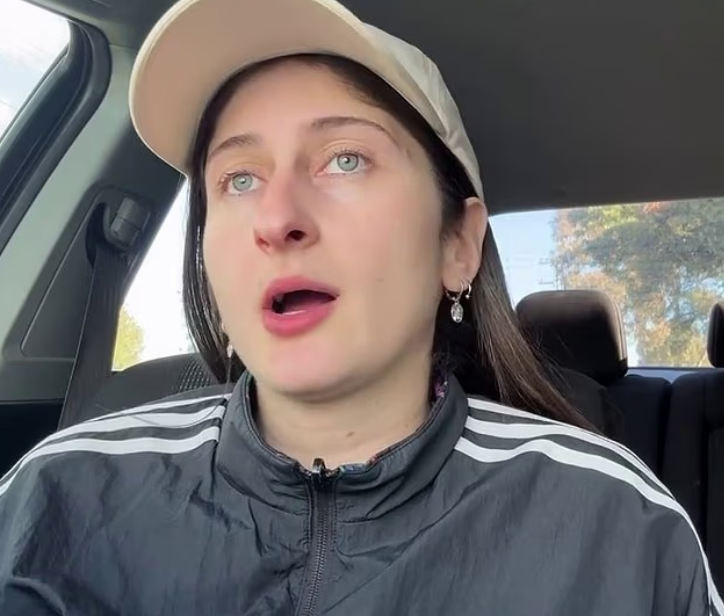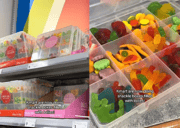
When Melbourne woman Kat Zam decided she'd never book another Uber, she wasn't making a rash decision. Like many Australian women, she'd simply had enough of feeling uncomfortable during what should be routine trips home.
Her story, which gained attention after she shared it on social media, highlights a growing conversation about rideshare safety that's particularly relevant for women travelling alone—especially during late-night journeys.
The uncomfortable reality of rideshare experiences
Kat's experiences weren't isolated incidents. Although 99.9 per cent of Uber trips end without any safety-related issues, there were still 2,717 incidents of sexual assault and misconduct reported in the company's most recent report (2021—2022).
The 38-year-old described being asked personal questions by male drivers that left her feeling vulnerable: questions about her age, relationship status, and in one case, a request for her phone number.
'I feel nervous, you know, when you get asked questions like 'how old are you', or 'do you have a boyfriend',' she explained in her July video. 'I don't want to be asked those things when I'm trying to get home, especially when it's late at night.'
The responses to her social media post revealed she wasn't alone. Women shared similar experiences: drivers who wouldn't unlock doors until they received five-star ratings, unwanted invitations for dates, and constant inappropriate questions during rides.
'Most rideshare passengers who report feeling unsafe are women or gender-diverse'
What the research reveals about rideshare harassment
There is emerging anecdotal evidence to suggest that both taxi and rideshare services are sites of sexual harassment and violence. However, little is known about passengers' perceptions of safety when using taxis and rideshare services, an issue with significant implications for mobility, civic participation and social inclusion.
University of Melbourne Professor of Criminology Bianca Fileborn, whose research focuses specifically on sexual harassment in transport settings, found that most passengers who report feeling unsafe are women or gender-diverse.
Her research found these groups were more likely to experience unwanted flirting or inappropriate questions, particularly about their bodies or gender identity.
The vulnerability factor is significant. As Professor Fileborn noted: 'There's increased vulnerability when you're in the car; you're usually alone with a stranger, and they have complete control over the vehicle.'
The numbers behind rideshare safety
While these experiences are deeply concerning, it's important to understand the broader statistical picture. Although 99.9 per cent of Uber trips end without any safety-related issues, and safety incidents generally only occur on 0.0003 per cent of all trips, the absolute numbers still matter when millions of trips occur annually.
In 2021 and 2022, there were 2,717 incidences of sexual assault on Uber trips in the U.S., accounting for 93 per cent of the company's total safety incidents. Out of these 2,717 sexual assaults, 285 were nonconsensual sexual penetration, or rape, a total of 10 per cent of all sexual assaults. Of these 285 survivors, 89 per cent were women.
Australian rideshare market snapshot
Uber is the most popular ridesharing brand in the country, by a significant margin; closest rivals DiDi and Ola have a far smaller user base.
The Uber app was downloaded well over 100 thousand times in early 2024, whereas DiDi only received around 80 thousand downloads.
What makes Shebah different
All drivers are women
The only rideshare service that can legally transport unaccompanied children
Book baby seats and/or booster seats
Book a trip up to 14 days in advance
No unexpected surge pricing! Ever
All drivers have been vetted with Police Checks and Working with Children Checks
Beyond women-only services: practical safety measures
For those who continue using mainstream rideshare services, there are evidence-based safety practices worth adopting:
Before and during your ride:
- Check the driver's rating and prior experience before you enter their car. Make sure the car has the correct license plate number, make, model, and driver
- Share your location with trusted contacts using built-in features
- Call 911 via the Uber or Lyft app if you feel unsafe. The benefit of going through the app rather than calling 911 directly is that the police will automatically receive your location information and trip details
Trust your instincts:
If something feels wrong, it probably is. Both major platforms have safety features including emergency buttons and the ability to end trips early.
The market response to safety concerns
The success of services like Shebah suggests there's genuine demand for safer alternatives. Research shows 'Uber' takes the top spot in Australian rideshare usage, while 'Shebah' is at the other end of the ranking, but the fact that women-only services are establishing themselves indicates an important market need.
Uber had the highest customer satisfaction ranking at 88 per cent, yet stories like Kat's continue to emerge, suggesting that while most experiences are positive, the negative ones can be significant enough to drive customers away permanently.
Making rideshares safer for everyone
- Trust your instincts—if something feels wrong, prioritise your safety
- Use platform safety features like sharing location and emergency contacts
- Consider women-only alternatives like Shebah for added peace of mind
- Report inappropriate behaviour to help protect other passengers
- Travel in groups when possible for late-night journeys
A conversation that's long overdue
Kat Zam's decision to speak out has contributed to an important conversation about transport safety that extends far beyond individual experiences. Little is known about passengers' perceptions of safety when using taxis and rideshare services, an issue with significant implications for mobility, civic participation and social inclusion.
The emergence of women-focused alternatives like Shebah, combined with improved safety features from mainstream providers, suggests the industry is responding—albeit gradually—to legitimate safety concerns.
For many women, the question isn't whether rideshares are statistically safe, but whether they feel safe. And sometimes, that feeling matters more than any statistic.
What This Means For You
What are your thoughts on rideshare safety? Have you had experiences that made you reconsider which services you use, or discovered alternatives that work better for you? Share your stories and tips in the comments below—your experience might help another reader make a safer choice for their next journey.
Original Article
https://www.dailymail.co.uk/news/ar...tml?ns_mchannel=rss&ns_campaign=1490&ito=1490
Rideshare Safety and Statistics for 2025
Cited text: (Uber U.S. Safety Report) Although 99.9 per cent of Uber trips end without any safety-related issues, there were still 2,717 incidents of sexual assault and m...
Excerpt: Although 99.9 per cent of Uber trips end without any safety-related issues, there were still 2,717 incidents of sexual assault and misconduct reported in the company's most recent report (2021—2022)
https://www.bankrate.com/insurance/car/rideshare-safety-statistics/
Perceptions of Safety Among Taxi and Rideshare Service Patrons: Gender, Safekeeping And Responsibilisation | International Journal for Crime, Justice and Social Democracy
Cited text:
Excerpt: There is emerging anecdotal evidence to suggest that both taxi and rideshare services are sites of sexual harassment and violence.
https://www.crimejusticejournal.com/article/view/2085
Drive for Shebah
Cited text:
Excerpt: Although 99.9 per cent of Uber trips end without any safety-related issues
Ridesharing in Australia—statistics & facts | Statista
Cited text: Uber is the most popular ridesharing brand in the country, by a significant margin; closest rivals DiDi and Ola have a far smaller user base.
Excerpt: Uber is the most popular ridesharing brand in the country, by a significant margin; closest rivals DiDi and Ola have a far smaller user base.
https://www.statista.com/topics/9632/ridesharing-in-australia/
Ridesharing in Australia—statistics & facts | Statista
Cited text: The Uber app was downloaded well over 100 thousand times in early 2024, whereas Didi only received around 80 thousand downloads, and Ola downloads amo...
Excerpt: Uber is the most popular ridesharing brand in the country, by a significant margin; closest rivals DiDi and Ola have a far smaller user base.
https://www.statista.com/topics/9632/ridesharing-in-australia/
Shebah on the App Store
Cited text: Shebah is Australia’s leading all-women rideshare service with a vision to create a safer world for all women and children.
Excerpt: Australia's first and only all-women rideshare service, getting women and children where they need to go, Australia wide
https://apps.apple.com/au/app/shebah/id1168961723
Shebah on the App Store
Cited text: Shebah is a unique rideshare servi…Shebah is Australia’s leading all-women rideshare service with a vision to create a safer world for all women and ...
Excerpt: Shebah first launched on International Women's Day 2017. Since then, we've grown to have a fleet of over 1000 incredible women driving with us and we're growing more and more everyday
https://apps.apple.com/au/app/shebah/id1168961723
Shebah on the App Store
Cited text: Shebah is a unique rideshare service: - All drivers are women—We are the only rideshare service that can legally transport unaccompanied children - ...
Excerpt: was looking for a more flexible working option to meet her family's needs. She considered Uber driving but felt uneasy about her safety
https://apps.apple.com/au/app/shebah/id1168961723
Shebah—Apps on Google Play
Cited text:
Excerpt: All drivers are women
https://play.google.com/store/apps/details?id=au.com.shebah.rider&hl=en_AU
App-About | Shebah
Cited text: Shebah first launched on International Women’s Day 2017.
Excerpt: All drivers have been vetted with Police Checks and Working with Children Checks
https://www.shebah.com.au/app-about
App-About | Shebah
Cited text: We exist so that women in Australia can live their lives to the fullest and feel empowered.
Excerpt: All drivers have been vetted with Police Checks and Working with Children Checks
https://www.shebah.com.au/app-about
Rideshare Statistics for 2024
Cited text: Check the driver’s rating: Review the driver’s rating and prior experience before you enter their car. Confirm car and driver information: Make sure t...
Excerpt: Check the driver's rating and prior experience before you enter their car. Make sure the car has the correct license plate number, make, model, and driver
https://www.autoinsurance.com/research/rideshare-statistics/
Rideshare Statistics for 2024
Cited text: Call 911 when necessary: If you feel unsafe, call 911 via the Uber or Lyft app. The benefit of going through the app rather than calling 911 directly ...
Excerpt: Call 911 via the Uber or Lyft app if you feel unsafe. The benefit of going through the app rather than calling 911 directly is that the police will automatically receive your location information and trip details
https://www.autoinsurance.com/research/rideshare-statistics/
Ride sharing/hailing / online taxi usage by brand in Australia 2024 | Statista
Cited text: We asked Australian consumers about "Ride sharing/hailing / online taxi usage by brand" and found that "Uber" takes the top spot, ...
Excerpt: We asked Australian consumers about 'Ride sharing/hailing / online taxi usage by brand' and found that 'Uber' takes the top spot, while 'Shebah' is at the other end of the ranking
https://www.statista.com/forecasts/...iling-online-taxi-usage-by-brand-in-australia
Uber Statistics (2025) - Australia vs Global Statistics
Cited text: Uber had the highest customer satisfaction ranking at 88 per cent.
Excerpt: Uber had the highest customer satisfaction ranking at 88 per cent
https://www.moneyaustralia.net/uber-statistics/







